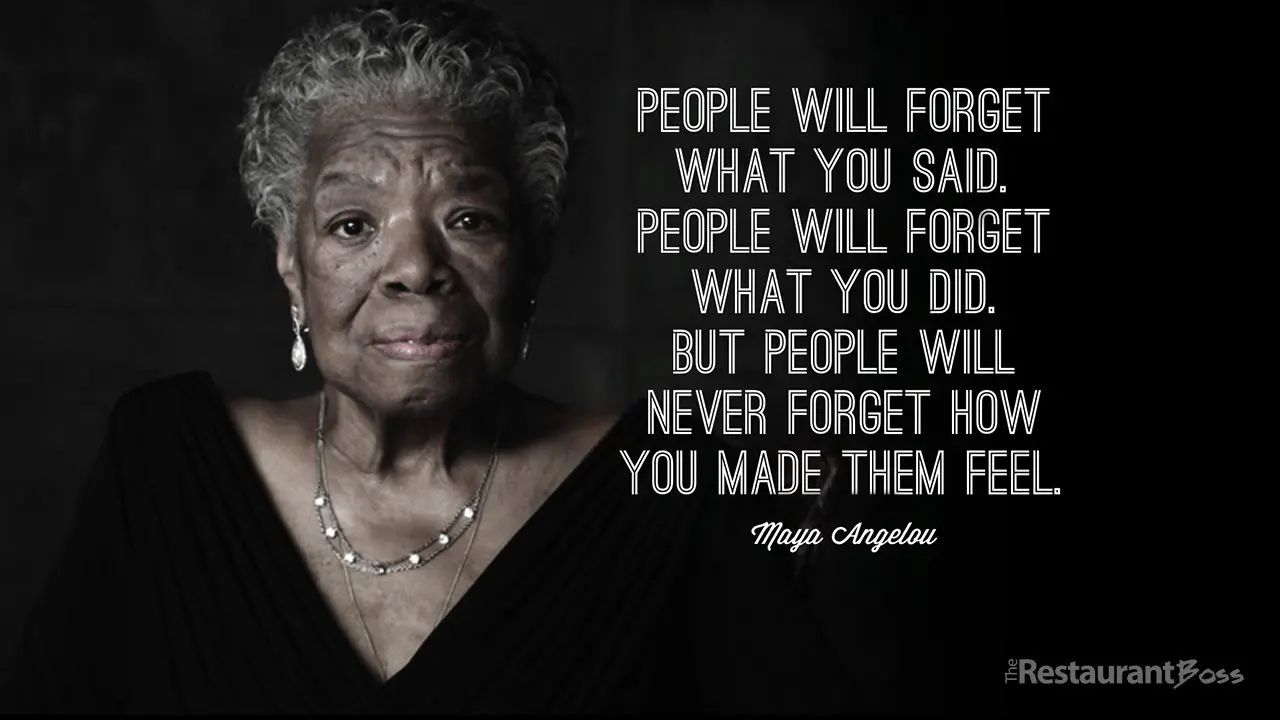A few weeks back, I published a blog about people complaining in a company. The article has received a lot of attention and love, and I appreciate all of you who retweeted it and linked to it and Instapaper linked it and recommended it in Pocket.
I completely stand by all that I said, and I think it's worth paying attention to.
Today I want to talk to you about not complaining. Well, just a bit.
Actually, maybe I'm going to talk about how to do it better, since I've been working on learning that bit.
There are things we know about human interaction and human memory, and some of them seem pretty crucial to anyone who wants to make a change in their culture (org or otherwise).
You see, people remember the way you make them feel.
The fundamental rule for any change agent has to be:
Remember when you last cut your finger or barked your shin? Do you have more memory about how it felt, or what color the walls and ceilings were in the room, it's location, and the full set of people in the room when it happened? Odds are, there is more feel than fact in your memory -- or else that the feel precedes the facts when you recall the event.
Were you ever afraid? I bet you have a number of memories filed under "fear" that aren't easily accessible to you through other categories. Your filing system is largely emotional.
Likewise, there is probably a sub-folder for the times you were really afraid at first, but then had a flood of relief when you realized that the fear was totally unfounded. You mistook your coat on the coat hook for a stranger in the room, you thought you were going to fall when you were in no danger, that rustling behind the bush turned out to be a bunny rabbit. The relief is a powerful feeling.
Think of someone you would like to see again. Pleasant feelings, sadness at the distance between you, nostalgia? These tend to precede any concrete memory of what they've done or even what they look(ed) like.
Likewise, could you list one or more beloved mentor in your life? How do you feel first when you think about them, even before you list one thing that they told you, however life-changing it was?
Is there someone you would like to avoid? Ah. Negative feelings, huh? Could you make a list of four or five right now? I'm betting you could.
Now if the most dreadful of the five came to you and told you that you're parking your car incorrectly, or wearing colors that don't work together, or holding your pen wrong... how likely are you to receive this information with joy and gladly correct your behavior?
What were the dreadful traits of the people you found dreadful?
I completely stand by all that I said, and I think it's worth paying attention to.
Today I want to talk to you about not complaining. Well, just a bit.
Actually, maybe I'm going to talk about how to do it better, since I've been working on learning that bit.
There are things we know about human interaction and human memory, and some of them seem pretty crucial to anyone who wants to make a change in their culture (org or otherwise).
You see, people remember the way you make them feel.
The fundamental rule for any change agent has to be:
Don't Be DreadfulYou see, part of your memory mechanism involves your amygdala and your hippocampus. These are two parts also very much involved in your emotional experience. But you don't have to know much about neuroscience (as indeed I do not) in order to appreciate that memory stores not only data but also emotions and sensations.
Remember when you last cut your finger or barked your shin? Do you have more memory about how it felt, or what color the walls and ceilings were in the room, it's location, and the full set of people in the room when it happened? Odds are, there is more feel than fact in your memory -- or else that the feel precedes the facts when you recall the event.
Were you ever afraid? I bet you have a number of memories filed under "fear" that aren't easily accessible to you through other categories. Your filing system is largely emotional.
Likewise, there is probably a sub-folder for the times you were really afraid at first, but then had a flood of relief when you realized that the fear was totally unfounded. You mistook your coat on the coat hook for a stranger in the room, you thought you were going to fall when you were in no danger, that rustling behind the bush turned out to be a bunny rabbit. The relief is a powerful feeling.
Think of someone you would like to see again. Pleasant feelings, sadness at the distance between you, nostalgia? These tend to precede any concrete memory of what they've done or even what they look(ed) like.
Likewise, could you list one or more beloved mentor in your life? How do you feel first when you think about them, even before you list one thing that they told you, however life-changing it was?
Is there someone you would like to avoid? Ah. Negative feelings, huh? Could you make a list of four or five right now? I'm betting you could.
Now if the most dreadful of the five came to you and told you that you're parking your car incorrectly, or wearing colors that don't work together, or holding your pen wrong... how likely are you to receive this information with joy and gladly correct your behavior?
What were the dreadful traits of the people you found dreadful?
- Fault-finding
- Self-involvement
- Self-seeking
- Putting their desires before others' needs
- Continuous Indignation
- Kissing up
- Insisting on always getting their way
- Being dismissive of others
- Spoilsports ("buzzkills")
- Bossy-ness
- Being disingenuous
- Being habitually disdainful
- Taking joy from others' upset
We are unlikely to make a personal change to satisfy someone who doesn't respect us. Driving people to obligation through rude behaviors is a poor change strategy.
We are more likely to make a change that will improve our lives on the advice of people who have shown a genuine interest in our success.
If we are to be change agents, if we decide that we want to make a difference by improving the lives of people we come in contact, if we decide that we want to be a part of the mission to "make people awesome" then we need to recognize that this is relational work; all the things we say and do have as much emotional content as data.
If we are right, but we are awful, then people will probably not engage with us in a meaningful way. Our conversations will likely to be filed under "things that awful person said" instead of "things that will help me."
If we're awful enough, we will serve as an inoculation against good ideas and advice. People will have built up an immune system such that when a statement made by some other change statement reminds them of our interaction, they will shut down the other person. This immunity to change may last years or decades into the future.
If we're awful enough, we will serve as an inoculation against good ideas and advice. People will have built up an immune system such that when a statement made by some other change statement reminds them of our interaction, they will shut down the other person. This immunity to change may last years or decades into the future.
It is absolutely crucial for a change agent to be heard.
We are heard when we are welcomed and invited. We are more likely to be ignored when our presence is dreaded.
If our words and ideas are to have any good effect on our world, then it falls on us to make it easy to listen to us and easy to hear our perspectives, ideas, and (when absolutely necessary) advice.
In other words, we must never become dreadful to people who need our help.


No comments:
Post a Comment